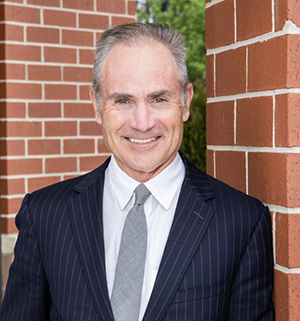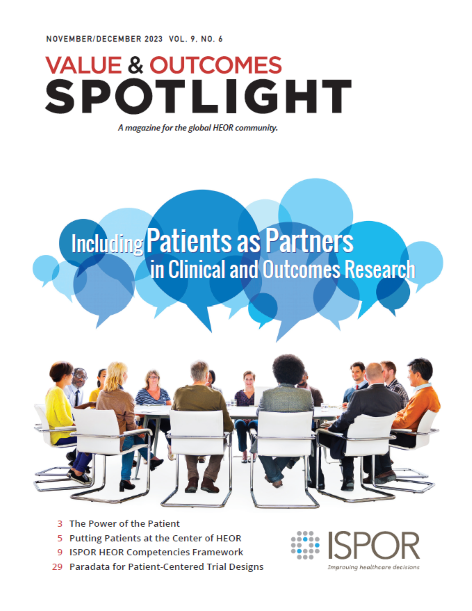Putting Patients at the Center of Health Economics and Outcomes Research
Rob Abbott, CEO and Executive Director, ISPOR

Health economics and outcomes research (HEOR) is, by definition, a multidisciplinary and multifaceted endeavor. As such, it is sometimes easy to get “lost” in the nuance of a particular cost-effectiveness study or the latest debates about quality-adjusted life years. If one takes a metaphorical step back, though, and thinks about the end rather than the means to get there, it’s much easier to navigate our field. To borrow from the political strategist, James Carville, “it’s about the patient, stupid.”
Everything we do is ultimately about making healthcare systems more accessible, more equitable, and more impactful for patients. It’s really that simple—not easy, but simple.
All of us have been, or will be, patients. And we certainly know family members and friends who have been patients. We have skin in this game and should care in a very personal way about the level of engagement and the level of care that is accorded to patients. Looking forward, it also seems clear that enabling and empowering patients to practice better “self-care” will be an increasingly important feature of the healthcare landscape. To get there, we need to better understand—and value—the things that matter to patients; the things that actually make a difference to their health and enable them to enrich their experience of life.
"Everything we do is ultimately about making healthcare systems more accessible, more equitable, and more impactful for patients."
This is something that ISPOR takes very seriously. We think of patient-centered work as the “active, meaningful, and collaborative interaction between patients and researchers across all stages of the research process, where research decision making is guided by patients’ contributions as partners, recognizing their specific experiences, values, and expertise.” To me, this is nothing less than getting real about what we’re doing as HEOR scholars, practitioners, or advocates and ensuring that in our quest for “understanding” we don’t get lost in data and rush past the reason we gathered that data in the first place—to help a patient. It’s also about taking the steps to ensure that we are actively creating the conditions in which patients, their caregivers, and their families are able to grow their knowledge and develop the skills and confidence to more effectively manage and make informed decisions about their own health and healthcare. At the risk of stating the obvious, this is not a “one-size-fits-all” proposition. It needs to be coordinated and tailored to the unique needs of each patient. This is why our commitment to patient-centered outcomes research is so important; it helps people and their caregivers communicate and make informed healthcare decisions, allowing their voices to be heard in assessing the value—to them—of different healthcare options.
A lot of progress has been made in putting patients at the center of HEOR, and we are still a long way from where we need and want to be. Anyone who works in healthcare globally would agree, I think, that amplifying the patient voice and creating a more patient-centric decision-making process is a necessity, but also recognize that challenges remain in terms of bringing in the patient across the entire healthcare journey.
"Everything we do is intended to enhance people’s health in the first instance, and make the patient experience better when one’s health has been compromised."
ISPOR has worked hard to elevate the patient voice in our work, and it is one of my personal areas of focus as CEO. I am pleased to say that we have patient councils and roundtables that meet regularly and draw from patient representatives from around the globe. For those coming from low- and middle-income countries, we provide travel grants and fee waivers to ensure that they can participate and bring their diverse perspectives to bear. We also have a special interest group centered exclusively on leveraging the patient experience to inform our recommendations. In 2024, we will be upping the ante, so to speak, and bringing patients together for a global summit that allows for even greater interaction and shared learning.
As we embark on a new strategy for ISPOR in 2024, our society will be more actively working to position HEOR as a key tool to address the biggest challenges in healthcare globally: affordability, the impact of accelerating digitalization of health, and the growing interest in whole health. At the center of each of these challenges, however, is the patient. It bears repeating: everything we do is intended to enhance people’s health in the first instance, and make the patient experience better when one’s health has been compromised. I invite you to join us in making this a reality.

